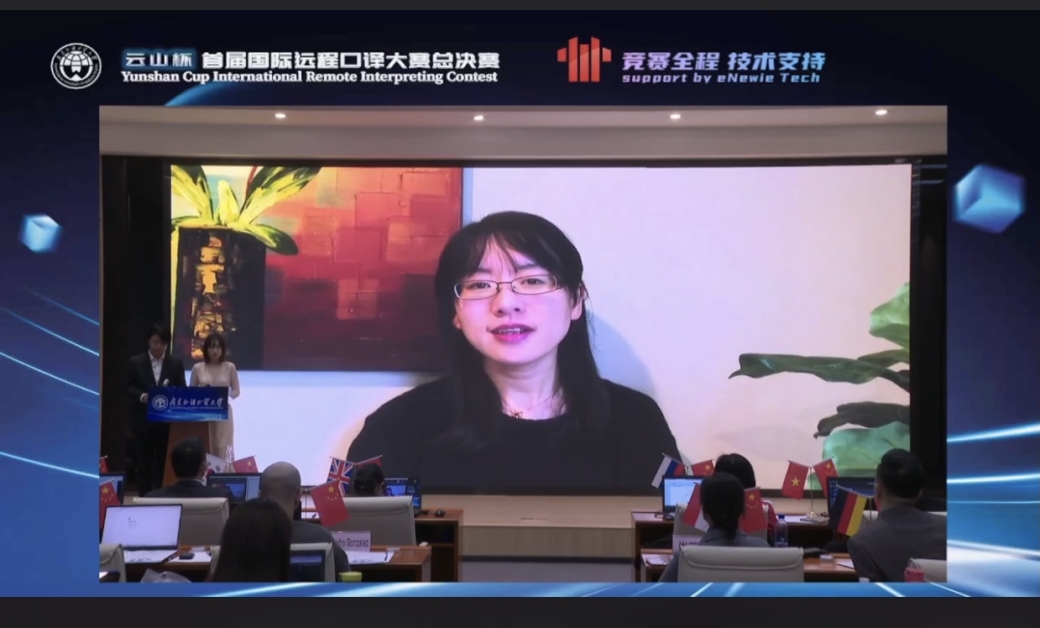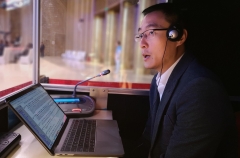Recent Graduates Win International Interpretation Competition
| by Jason Warburg
A pair of Middlebury Institute graduates won a prestigious international interpretation competition, citing the support of professors and fellow classmates as key to their win.




